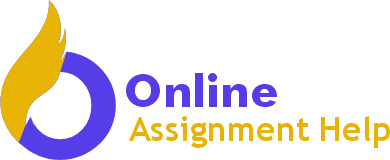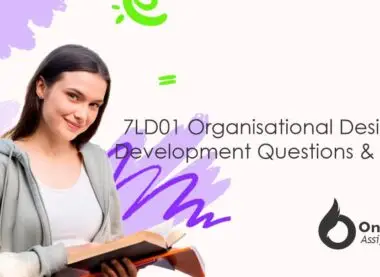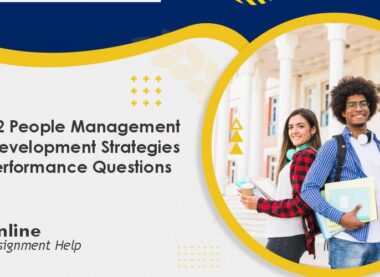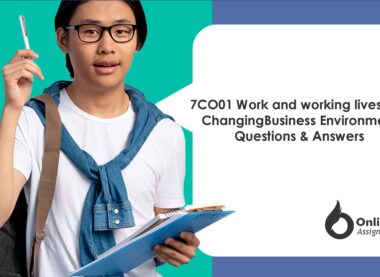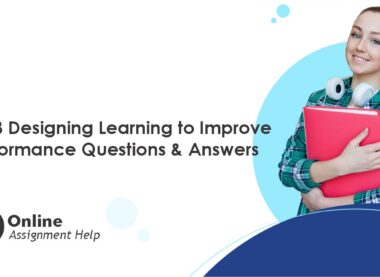About this Unit
This unit focuses on enabling successful employees and facilitating practical and ethical behaviours to advocate for better work and working lives and develop managerial skills. Workers must develop effective behavioural patterns guided by ethical and moral principles and behavioural standards. The theories and concepts underlying this subject are critical for promoting diversity and inclusion along with impacting others through fairness and transparency. This unit will contribute to a better understanding of the implications of actions and inclusive behaviour on the organisation through the basic skill sets such as communication, perception, teamwork and critical thinking.
What you will learn
The unit goes in-depth into the role of human resource professionals in assisting the organisational workforce. This unit covers the fundamental concepts of people management, which enable the learner to comprehend the significance of promoting inclusion, impacting others through fair corporate practices, and developing their skill set. The learner will critically assess different ethical standpoints in people practice and how ethical behaviour maintains high moral standards. Hence the learner will understand the significance of employees developing effective behaviours guided by ethical and moral principles and behavioural standards. The learner will understand business improvement in relation to working lives, assessing the promotion of fairness, well-being and the contribution of professional integrity in organisations, and assessing the costs and benefits of interactive methods, both externally and internally, over a range of business boundaries. Therefore, learners will understand how to develop ethical behaviours and promote inclusivity for all workers, as people professionals, through communication and teamwork.
Furthermore, learners will understand that to advocate for better work and working lives in organisations, professionals must foster an inclusive culture in which all people are treated fairly, and activities and functions are completed transparently. The learner will learn how to achieve and sustain challenging corporate goals through knowledge of the organisation and self-awareness and development to help you advance in your career. The learner will also rationalise the benefits of sustaining interest in learning, assess the need for continuous professional development, and discuss the advantages of evidence-based critical thinking. Finally, the learner will exhibit characteristics necessary for effective influencing and decision-making and identify the advantages of networking.
This unit is suitable for persons who
This unit equips learners with the understanding and strategy development skills necessary to operate and lead in an organisational context by providing a depth and breadth of understanding of people practice and management. It is, therefore, suitable for individuals who;
- Are experienced people professionals in executive people practice roles looking to enhance and expand their expertise, capacity and competence to influence strategy, policy, and people.
- Aspire to impact people practices to add value to a larger audience.
- Oversee people and practices within organisations presently.
- Have completed the CIPD Foundation Diploma in Human Resource Practice and wish to pursue a career in people management.
- Currently, work in human resource management and want to broaden their knowledge and expertise.
Learning outcomes
Upon completing this unit, learners should be able to fulfil the following four primary learning outcomes. These outcomes are further classified into a variety of sub-categories. The learning outcomes will enable them to:
- Be able to analyse values and principles that foster inclusivity to maximise people’s contributions to organisations (Learning outcome 1).
- Be capable of achieving and sustaining business outcomes for employees and the organisation (Learning outcome 2).
- Be able to implement what they have learned to improve their personal effectiveness (Learning outcome 3).
- Be able to make informed decisions with courage and integrity and impact others during the decision-making process (Learning outcome 4).
What are the entry requirements?
The unit has several formal requirements, some of which vary from institution to institution, while others apply to all students enrolled in the unit. Institutions have developed diagnostic tools to ensure that candidates are qualified to study for Personal Effectiveness, Ethics, and Business Acumen (7CO03). In most cases, institutions require candidates to possess knowledge of the English language to enrol in the course. For example, some require candidates to have a GCSE grade of C/4 or higher in English. Other institutions require IELTS 6.5/ESOL Level 2 or an equivalent for applicants who speak English as a second language. Most entities require the applicants to have a bachelor’s degree, CIPD level 5 qualifications, and be currently or previously employed in a human resources position. Significant people practise experience at a strategic level is sufficient as a degree substitution in exceptional cases but is subject to review. In some institutions, applicants must be at least 18 years old before enrolling in a course.
How we can help
Writing assignments are known for taking an excessive amount of time to complete. It is our responsibility to relieve you of the academic burden. We offer assistance to students who need help with their tasks on “Personal Effectiveness, Ethics, and Business Acumen (7CO03).” We have established a writing platform based on the intellectual capacity with you in mind. An interactive workspace where the brightest minds work together to help you avert headaches, stress, and all-nighters while studying. We are a team of highly skilled and professional writers, editors, and proofreaders whose primary goal is to make outstanding work easily achievable by relieving you of the burden of doing the tedious labour yourself. Our team consists of highly skilled experts who ensure our clients achieve the highest possible grade on their projects and research. No matter how urgent or complex it is, we accept all customers’ topics. We have a strict no-plagiarism policy and guarantee that each task is completed from scratch. We use licensed software to scan each paper for originality before forwarding it to you to ensure that it is 100% original. We pay close attention to the amount of research done on the paper to ensure that it is extensive and based on credible sources.
Furthermore, the document must be thoroughly proofread to conform to all marking rubrics and reference styles. Many students raise a concern about the security of their personal information; however, have no fear; we have an impeccable Privacy Policy that ensures our writing service is completely safe, secure, and private. Our objective is to guarantee that every customer we work with achieves academic success.
Resources used for the unit
There are several publications available for students who want to pursue this unit. The following are a few examples of them that are widely used by institutions worldwide.
Armstrong, M. (2020) Armstrong’s handbook of strategic human resource management. 7th ed. London: Kogan Page.
Armstrong, M. and Taylor, S. (2020) Armstrong’s handbook of human resource management practice. 15th ed. London: Kogan Page.
Armstrong, M., & Brown, D. (2019). Strategic Human Resource Management: back to the future. Institute for Employment Studies reports, 1-36.
Dyson, J.R. and Franklin, E. (2020) Accounting for non-accounting students. 10th ed. Harlow: Pearson Education.
Lancaster, A. (2019). Driving performance through learning: develop employees through effective workplace learning. Kogan Page Publishers.
Marchington, M., Wilkinson, A., Donnelly, R. and Kynighou, A. (2020) Human resource management at work: the definitive guide. 7th ed. London: CIPD Kogan Page.
Mulvie, A. (2021). Learning and Development for a Multigenerational Workforce: Growing Talent Amongst Age Diverse Employees. Routledge.
O’Sullivan, C., & O’Sullivan, T. (2021). Business Networking: Innovation and Ideas in Theory and Practice. Routledge.
Rose, M. (2018). Management: Alternatives, Consequences and Contexts, London: CIPD. Rose, M.(2018) Reward Management: A Practical Introduction, 2nd edn, London: Kogan Page. Human Resource Management, 162.
Hughes, C. (2019). Values and Decision-Making. In Ethical and Legal Issues in Human Resource Development (pp. 31-51). Palgrave Macmillan, Cham.
